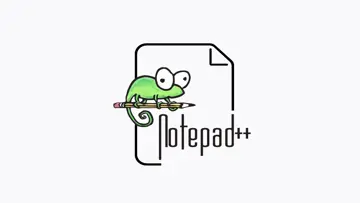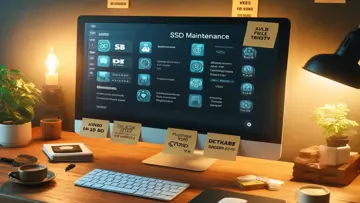Simplify Your Build Process with CMake by Bill Hoffman
CMake is a robust cross-platform build system that makes compiling and configuring projects easier.
Comprehensive and Cross-Platform Build Management with CMake
CMake, crafted by Bill Hoffman, stands out as a premier open-source, cross-platform tool meticulously designed to streamline the build, testing, and packaging processes for software projects. Celebrated widely in C and C++ communities, CMake simplifies complex build configurations and enhances project maintainability across diverse operating systems including Unix, Linux, Windows, and macOS.
Key Features that Elevate Your Development Workflow
- Platform Compatibility: Seamlessly generate native build scripts for various environments like Makefiles, Ninja, Visual Studio, and Xcode.
- Flexible Build Environments: Support for different build tools provides developers the freedom to choose their preferred workflow without altering project configurations.
- Declarative Language: Easily create intricate build hierarchies with a straightforward syntax that promotes better organization and dependency management.
- Out-of-Source Builds: Maintain a clean source directory by keeping build artifacts separate, simplifying switches between different build modes.
- Integrated Testing & Packaging: Use built-in support for CTest and CPack to automate testing procedures and generate distributable packages effortlessly.
Robust Community Support and Ecosystem
CMake benefits from a vibrant community of active users and contributors who provide ongoing support, develop plugins, and share best practices. This extensive ecosystem ensures that developers have access to continuously evolving resources and expert assistance.
Why Choose CMake for Your Projects?
CMake is a powerful, flexible, and reliable build automation tool essential for modern software development. Its cross-platform capabilities, support for various build environments, intuitive syntax, and comprehensive testing integration make it an indispensable tool for developers aiming to optimize their build workflows efficiently.
Overview
CMake is a Open Source software in the category Development developed by Bill Hoffman.
The users of our client application UpdateStar have checked CMake for updates 220 times during the last month.
The latest version of CMake is 4.0.2, released on 06/03/2025. It was initially added to our database on 08/24/2007.
CMake runs on the following operating systems: Windows.
CMake has not been rated by our users yet.
Pros
- CMake is a flexible and powerful build system tool that is cross-platform and widely supported in the software development community.
- It allows users to describe the build process using simple scripting language, making it easier to manage complex projects.
- CMake supports different build environments including makefiles, Visual Studio projects, and Xcode projects.
- It has a large and active community providing support, tutorials, and plugins to enhance its functionality.
- CMake provides built-in support for many popular programming languages like C, C++, and Java.
- It supports out-of-source builds, which helps keep the source directory clean and separate from build artifacts.
Cons
- CMake has a steep learning curve for beginners who are not familiar with its scripting language.
- Debugging configuration and generator issues can sometimes be challenging for users.
- The generated build files may not always be entirely optimized for specific platforms or architectures.
- CMake does not provide a built-in graphical user interface for generating project files, which may be a drawback for some users.
- Some advanced CMake features may require additional plugins or customization to fully utilize.
FAQ
What is CMake?
CMake is a build system generator designed to be used in conjunction with native build environments on a variety of platforms.
What languages does CMake support?
CMake supports a variety of programming languages, including C, C++, Java, Fortran, and Python. It can also be used to build projects that use multiple languages simultaneously.
What platforms does CMake support?
CMake is designed to work with a wide range of platforms, including Windows, Linux, macOS, and various UNIX operating systems.
How does CMake generate Makefiles?
CMake generates Makefiles by using its own language to describe build requirements and dependencies. The resulting Makefiles are then used with native tools to perform the actual build process.
Can CMake be used on large projects?
Yes, CMake can be used on large projects by breaking them up into smaller components with their own CMake files. This allows for easier management of complex build processes.
Can CMake be extended?
Yes, CMake can be extended with custom modules that define additional build rules and options. CMake also provides a scripting interface that can be used to automate build processes.
What are the advantages of using CMake?
CMake provides a uniform build interface across multiple platforms and compilers, which can simplify build processes and reduce the need for platform-specific build scripts. It also provides a flexible and customizable way to define build requirements and dependencies.
Are there any alternatives to CMake?
Yes, there are several alternative build system generators, including Autotools, SCons, and Premake.
Is CMake difficult to learn?
CMake has a relatively steep learning curve compared to other build systems. However, it provides extensive documentation and a large community of users who can provide support and guidance.
Is CMake free?
Yes, CMake is an open-source project released under the BSD 3-Clause License.

Boris Weber
I am an editor at UpdateStar. I started as a support engineer, and am now specialized in writing about general software topics from a usability and performance angle among others. I telecommute from UpdateStar’s Berlin office, when I am not working remote as a digital nomad for UpdateStar. When I'm not analyzing the latest software updates, you can find me exploring new cities, immersing myself in local cultures, and discovering innovative tech trends across the globe.
Latest Reviews by Boris Weber
- PDFSigner: Seamlessly Secure Your Documents
- Legacy Games Launcher offers a seamless gaming experience for classic game enthusiasts
- Unlock Your Full Potential in Revit with Personal Accelerator by Autodesk
- RawTherapee: Unleash the Full Potential of Your Photos
- Enhance Your Viewing Experience with LG On Screen Display!
Installations
Latest Reviews
|
|
PDFSigner
PDFSigner: Seamlessly Secure Your Documents |
|
|
PhotoMirage
Bring your photos to life with PhotoMirage by Corel Corporation. |
|
|
GPU Tweak III
Experience Maximum Performance with GPU Tweak III by Asus! |
|
|
IPTVSmartersPro
IPTVSmartersPro: A Premium IPTV Viewing Experience |
|
|
Legacy Games Launcher
Legacy Games Launcher offers a seamless gaming experience for classic game enthusiasts |
|
|
Norton Antivirus 2005
Norton Antivirus 2005: Protect Your Computer with Peace of Mind |
|
|
UpdateStar Premium Edition
Keeping Your Software Updated Has Never Been Easier with UpdateStar Premium Edition! |
|
|
Microsoft Edge
A New Standard in Web Browsing |
|
|
Microsoft Visual C++ 2015 Redistributable Package
Boost your system performance with Microsoft Visual C++ 2015 Redistributable Package! |
|
|
Google Chrome
Fast and Versatile Web Browser |
|
|
Microsoft Visual C++ 2010 Redistributable
Essential Component for Running Visual C++ Applications |
|
|
Microsoft Update Health Tools
Microsoft Update Health Tools: Ensure Your System is Always Up-to-Date! |





